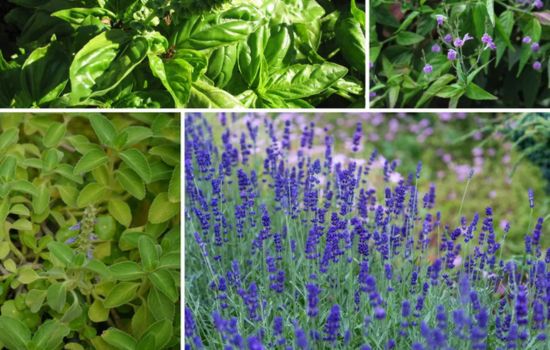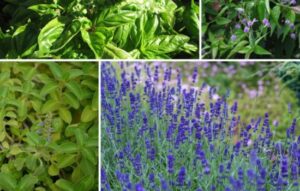Plants have been essential to humanity throughout history, not only for their beauty, but also for their many beneficial properties for health and well-being.
Some plants are known for their ability to purify the air, while others offer healing or aromatic properties. In this article, we'll explore the 5 most useful plants in the world: lavender, Sword of Saint George, English ivy, aloe vera and chlorophytumEach of these plants has unique properties that make them indispensable in many homes around the world.
In addition to their physical and psychological benefits, many of these plants also have a rich cultural and spiritual history. From being used in ancestral rituals to becoming common natural remedies, their versatility is limitless.
Throughout the centuries, folk wisdom has recognized the value of plants not only as medicinal resources but also as symbols of healing and connection with nature. By understanding the properties and uses of these five plants, we can harness their full potential and improve our health and quality of life naturally.
1. Lavender: The Aromatic Plant with Multiple Benefits
The lavender It's a plant known not only for its pleasant aroma, but also for its many health and skin benefits. Native to the Mediterranean region, this plant has been used for centuries in traditional medicine and aromatherapy.
Properties of Lavender:
Lavender has a number of properties that make it highly valuable both medicinally and in the home. Its benefits are widely recognized by health professionals and people seeking natural alternatives to improve their quality of life.
- Natural Relaxant: Lavender is famous for its calming properties. Lavender essential oil is known to help reduce stress and anxiety and improve sleep quality. In fact, scientific studies have shown that inhaling lavender's scent can reduce anxiety levels and improve nighttime rest.
- Anti-inflammatory: This plant has anti-inflammatory properties that can help relieve muscle pain or headaches. Lavender essential oil can be applied to the affected areas, providing instant relief from inflammation and pain.
- Antiseptic: Lavender oil has antiseptic properties, making it an excellent remedy for minor wounds and burns. Applying it to the skin helps prevent infection and speeds wound healing.
- Improves skin: Lavender oil is also used to treat skin conditions such as acne, scars, and dry skin. This is due to its antibacterial and antioxidant properties, which help purify the skin and keep it healthy.
Common Uses of Lavender:
In addition to its medicinal properties, lavender has a variety of uses in everyday life that make it even more attractive.
- Lavender essential oil: It's used for massages, in diffusers, or in relaxing baths. Lavender oil is very popular in aromatherapy, as it has calming and soothing effects that can improve mood and concentration.
- Lavender tea: An infusion that can help relieve anxiety and promote sleep. This tea is also useful for relieving minor digestive ailments, such as an upset stomach or indigestion.
- Decorative plants: Lavender flowers are ideal for gardens and balconies, providing an aesthetic as well as a functional touch. This plant is not only beautiful but also acts as a natural repellent for insects, such as mosquitoes.
2. St. George's Sword: A Powerful Houseplant
The Sword of Saint George either mother-in-law's tongue It is one of the most popular indoor plants due to its easy care and purifying properties. This plant is native to Africa, but has been cultivated all over the world for its health and decorative benefits.
Properties of the Sword of Saint George:
St. George's sword is known for being one of the most resilient and beneficial plants in terms of air purification. Its ability to purify the environment is especially valuable in enclosed spaces such as offices, apartments, and living rooms.
- Air purification: St. George's sword is known for its ability to purify the air of toxins. It has been shown to remove volatile organic compounds (VOCs) found in cleaning products, paints, and plastics. This property makes St. George's sword an excellent choice for those who want to keep their homes cleaner and healthier.
- Easy care: This plant is almost indestructible. It can survive with little water and low light conditions, making it a perfect choice for those who don't have much time to care for plants.
- Carbon dioxide absorption: During the night, the sword of St. George releases oxygen, which improves the air quality in the home. This process is particularly beneficial for those who suffer from allergies or respiratory problems.
Common Uses of the Sword of Saint George:
- Decorative plant: Ideal for homes and offices due to its durability and ease of maintenance. This plant is very versatile and can be placed in any corner of the house, from the living room to the bathroom.
- Natural air purifier: Placing several St. George's sword plants in your home helps naturally improve air quality. It also acts as a natural filter to eliminate unpleasant odors.
3. English Ivy: A Plant with Medicinal Properties
The English ivy It is a climbing plant known for its ability to quickly cover surfaces. In addition to its decorative uses, English ivy has many medicinal applications that make it one of the most useful plants.
Properties of English Ivy:
English ivy is widely used in natural medicine, especially for treating respiratory problems. Its benefits also extend to the skin, digestive system, and more.
- Anti-inflammatory: English ivy is known for its anti-inflammatory effects, making it useful for treating respiratory conditions such as bronchitis. Ivy extract is used to reduce inflammation in the airways and improve breathing.
- Natural decongestant: English ivy extract is used in syrups to relieve coughs and respiratory problems, as it helps loosen mucus and facilitate breathing. It is especially useful for colds and flu.
- Wound treatment: Ivy leaves have been traditionally used to treat wounds and skin injuries due to their healing properties. They are also used in ointments to relieve muscle and joint pain.
Common Uses of English Ivy:
- Cough syrup: A natural remedy that relieves coughs and congestion. This syrup is especially useful during cold season, as it helps reduce inflammation in the airways.
- Skin creams: It's used in cosmetic products to help reduce inflammation and improve skin health. English ivy creams are effective for treating eczema and minor burns.






